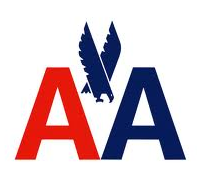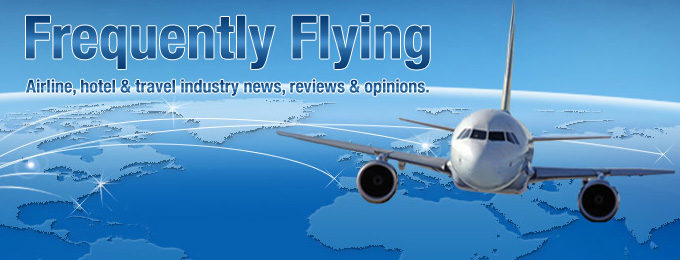The two largest operating expenses for airlines are labor and jet fuel with the latter taking the top spot so far this year at all U.S. carriers. It’s probably the most volatile line item on the books and the Air Transportation Association estimates that for every penny increase in the price of a gallon of jet fuel, the total annual fuel bill for U.S. airlines increases by $175 million. Managing the fuel program for an airline has to be one of the most stressful positions with risks equivalent to investing in the stock market. So what do airlines do to mitigate the risk? On the financial & forecast front, many carriers take up fuel hedging as a type of insurance against higher oil prices. Operationally, carriers look to buy the most fuel-efficient aircraft possible. And like searching for the cheapest gas station around your own neighborhood, they’ll look to fill up where costs are lowest, even if it is by their own creation.

Last week the Chicago Tribune brought to light the fact that both American Airlines and United Airlines are legally saving between $12 million to $14 million in jet fuel taxes due to the way Illinois law is setup. Both carriers have a small (one- or two-person) subsidiary office in Sycamore, Illinois, well outside of Chicago, whose primary purpose is to act as a wholesaler by buying jet fuel and reselling it to the carriers for their Midwest operations. Wholesale purchases aren’t taxed in Illinois until they are sold to the end user, so as the “official†sale to the airline doesn’t take place until processed by these offices, the fuel remains untaxed. There is a 1.75 percentage point sales tax savings doing the final sale in Sycamore vs. Chicago, and then add in an even better deal worked out between the airlines and city government.
In Sycamore, 2.75 percent of the 8 percent total sales tax goes to the municipality who in return reportedly kicks back nearly the entire amount to the jet fuel subsidiaries. The city reportedly collects only $400,000 annually from each company and the city’s mayor is “thankful for the revenue stream.†So instead of being charged 9.75% had these purchases taken place in Chicago, American and United are realizing nearly a 4.5 percentage point savings. Smart business, or slightly scandalous?
Separately, the City of Chicago and the Regional Transportation Administration filed lawsuits against other nearby cities for seemingly similar practices where tax-rebate programs have diverted sales tax. They’re fully aware of these airline deals in Sycamore and one spokeswoman for the city’s law department claims they are “taking administrative action,†although details remain confidential unless it was to move into the court system.
It’s glaringly obvious tax avoidance, but since it’s perfectly legal under the framework of existing law, I understand why the airlines set the offices up. Instead of pursuing administrative action, whatever that might be, perhaps the city would be better off developing their own incentives to bring the business inside Chicago’s limits. I highly doubt it would come anywhere near the current 4.5% tax savings, but they should respond to the situation and not react to it.
Chicago and Cook County have among the highest jet fuel and other travel taxes in the country. Even six years ago in 2005 airlines openly acknowledged they avoid refueling in Chicago (and Los Angeles) due to the high taxes. United spokesperson Jeff Green told the Chicago Tribune back then, “We lift 20 to 30 percent less fuel in Chicago than we otherwise would because the price is not competitive due to the taxes. Any flight coming to Chicago is taking on as much fuel as it possibly can before it gets here.†Perhaps the Illinois State government in Springfield should consider a deal similar to what Georgia gave Delta Air Lines, which effectively saves the carrier an equivalent amount of money each year for the next two years.
In any case, it’s just another example of a company legally working the system to reap a significant tax advantage. I can’t condemn American or United and I’m sure their shareholders agree. Is it questionable? Yes, and I’m confident the persons manning those offices have rubber stamp jobs with all the decision making and dealing being done at corporate. What do you think? Are American and United practicing legal tax avoidance or something closer to tax fraud?


So is this the new version of a Fuel Dump fare?? 😀
Makes the shenanigans of passengers look like small potatoes.
How hilarious… didn’t even think about it being their “fuel dump,” but it certainly is.
US Supreme Ct Justice Douglass wrote in a majority opinion that the taxpayer has the right to use any means within the tax code to minimize his tax burden.
Although he was talking about a human and personal taxes, the courts have taken it to mean companies and corporate taxes as well.
Although this is not an income tax I suspect that the city would have a very difficult time claiming that AA or UA is doing something wrong.
If they go after those ORD based airlines, then the airlines will move corp HQ. Chicago would have a lot explaining to do if it tried to grab the tax from Delta or US, and so all a collection effort would do would be to move even more tax revenue out of town (with associated jobs).
There’s a cost in moving, so if they bluster around a bit they might get a small settlement that makes the politicians look good on the news, but the city is holding the short end of the stick here.
Thanks for the court background. And I’d have to agree that any possible retaliation against the airlines for this would be minimal… especially for United who in the recent past moved their HQ from the ‘burbs to the city.
a couple points.
There is a distinction between avoidance and evasion; avoidance (or mitigation, if you prefer) is completely legal. Evasion, not so much. This is avoidance. This isn’t even one of the corporate fatcat loopholes currently being demonized.
@Steve Kalman ~ I don’t think Douglas wrote that. He might have written something like that as he was pretty anti-IRS but I’m not a Douglas-ophile. But if he did, he would have been cribbing what Learned Hand wrote in 1934 while serving as a Fed Appeals Judge.
“Anyone may so arrange his affairs that his taxes shall be as low as possible. He is not bound to choose that pattern which best pays the treasury. There is not even a patriotic duty to increase one’s taxes. Over and over again the Courts have said that there is nothing sinister in so arranging one’s affairs as to keep taxes as low as possible. Everybody does so, rich or poor; and all do right, for nobody owes any public duty to pay more than the law demands: taxes are enforced exactions, not voluntary contributions. To demand more in the name of morals is mere cant.”
How is this any more fraudulent than someone moving their business from a high tax state to a low tax state to save on taxes? Or retiring to a state without an income tax?
This is a great example of lower tax rates generating MORE revenue. These small towns would have gotten none of this revenue had they not offered a lower rate. If a lower fuel tax rate became available elsewhere, someone would move.
Finally, think about all the wasted fuel the airlines burn flying planes to ord with more fuel than needed just to avoid the high tax rate. While it may be economically rationale, it certainly doesn’t help reduce our dependence on foreign oil.
Agreed, and I think the biggest issue the city of Chicago would have is the fact that the offices in Sycamore are probably just rubber stampers and do none of the actual fuel buying and selling.